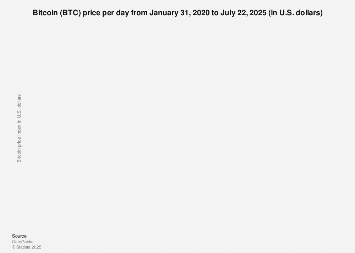AZG News Hub
Your go-to source for the latest news and informative articles.
Bitcoin: The Cryptocurrency That Conquered the World
Discover how Bitcoin became the world's leading cryptocurrency and revolutionized finance—join the digital gold rush today!
How Bitcoin Changed the Financial Landscape: An In-Depth Analysis
Bitcoin has indelibly transformed the financial landscape since its inception in 2009. Its emergence as the first decentralized digital currency has challenged traditional banking systems and introduced new paradigms for value exchange. One of the most significant changes is the democratization of finance; individuals can now engage in peer-to-peer transactions without the need for intermediaries. This shift allows for reduced transaction fees and faster transfers, especially across international borders, making Bitcoin an appealing option for those who have been traditionally underserved by conventional financial institutions.
Moreover, the rise of Bitcoin has sparked the development of new financial products and services, such as cryptocurrency exchanges, wallets, and decentralized finance platforms. Investors have begun to view Bitcoin not just as a currency but as a potential store of value akin to gold, leading to increased institutional interest. With its ever-growing adoption, Bitcoin is paving the way for a more transparent and inclusive financial ecosystem. The implications of this transformation are profound, as it encourages innovation and global participation in economic activities, reshaping the future of finance as we know it.

The Rise of Bitcoin: From Obscurity to Global Dominance
The journey of Bitcoin is nothing short of remarkable. Initially introduced in 2009 by an anonymous figure known as Satoshi Nakamoto, Bitcoin started as a niche concept among cryptography enthusiasts. Its early adoption faced skepticism and misunderstanding, largely seen as a tool for illicit transactions on the dark web. However, as awareness grew and technological advancements emerged, Bitcoin began transitioning from obscurity to mainstream acknowledgment. More individuals and businesses recognized its potential as a decentralized currency, paving the way for broader acceptance and investment.
Today, Bitcoin stands at the forefront of the financial revolution, boasting a market capitalization that often exceeds hundreds of billions of dollars. Its allure lies not only in the promise of high returns but also in its underlying technology, blockchain, which offers security and transparency. The growing acceptance of Bitcoin by major corporations, financial institutions, and governments has solidified its position as a global asset. Bitcoin's rapid ascent challenges traditional financial systems and exemplifies a new era in which digital currencies may play a pivotal role in our economy.
Bitcoin vs. Traditional Currency: What You Need to Know
As the digital economy continues to evolve, Bitcoin has emerged as a compelling alternative to traditional currency. Unlike conventional currencies issued by governments, Bitcoin operates on a decentralized network known as blockchain technology. This enables secure, peer-to-peer transactions without the need for intermediaries such as banks. The advantages of Bitcoin include lower transaction fees, increased transaction speed, and broader accessibility for individuals in regions with limited banking infrastructure. However, potential users should also consider the volatility of Bitcoin prices and the regulatory uncertainties that may affect its adoption in the future.
In contrast, traditional currencies like the US Dollar or Euro are backed by governments and subject to regulatory oversight, which provides a level of stability and consumer protection. These currencies benefit from widespread acceptance and a robust infrastructure that facilitates transactions across various platforms. However, traditional currencies can also be impacted by inflation, monetary policy changes, and geopolitical factors. When comparing Bitcoin with traditional currency, it's essential to evaluate not only the financial implications but also the technological advancements, potential risks, and the speed at which each form of currency is becoming accepted in the global economy.